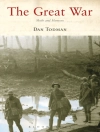Pre-school childcare in England, 1939–2010 investigates how competing ideas about child development influenced the provision, practice and experience of childcare for the under fives since 1939. It explores how theories which developed during the war about the psychological harm caused by separating an infant from its mother influenced the organisation of childcare outside the family in light of the social, economic and demographic changes seen during the years that followed. Focusing on four different forms of childcare – day nurseries, nursery schools and classes, playgroups, and childminders – it considers how both individual families and wider society managed the care of young children in the context of dramatic increases in the employment of married women. Using a new body of oral history interviews specifically undertaken for the book, it also examines the experiences and effects of care on those involved and the current policy implications raised.
Spis treści
Introduction
1. The Second World War
2. Day nurseries
3. Nursery schools and classes
4. Playgroups
5. Childminders
Conclusions
Select bibliography
Index
O autorze
Angela Davis is a British Academy Postdoctoral Fellow in the Department of History at the University of Warwick












